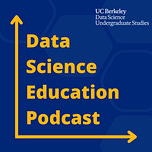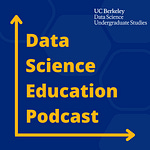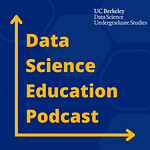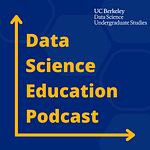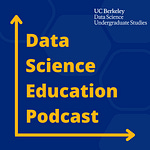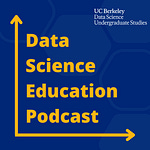Access the full transcript for this episode
“One of the ways we incorporate ethics is by trying to expose students to a plurality of perspectives. So we want students to hear from people with different perspectives on what it means to engage with data ethically, and so we do this by hosting guest speakers. We encourage students to take classes in a variety of departments around campus. We also try to introduce students to frameworks that can help them think about how to incorporate diverse perspectives in the creation of tech products and policy.” —Mallory Nobles
Today, we sit down with Dennis Sun and Mallory Nobles from Stanford University to discuss the university’s innovative approach to undergraduate data science education. Dennis and Mallory share insights into Stanford's dual-track offerings: the technical BS in Data Science and the interdisciplinary BA in Data Science & Social Systems. They dive into the origins and goals behind these programs, highlighting how they equip students with essential skills in data science, statistics, and ethics. The conversation also covers Stanford's emphasis on experiential learning through capstones, project-based courses, and partnerships with fields like neuroscience and engineering.
“When I came to Stanford, one challenge that was clear to me was that there were hardly any data science and machine learning classes that were accessible to freshmen or students early on in their college careers. So many of them were gated behind probability, linear algebra, and even several computer science courses. And it's a lot to ask a student to take a bunch of theoretical courses before they get to find out what data science is really about. So that was kind of the genesis of the Principles of Data Science course. It was designed to give students a sense of what data science is about, and it gives them the practical motivation to convince them that all the theoretical courses that they'll have to take are going to be worth it in the end.” —Dennis Sun

